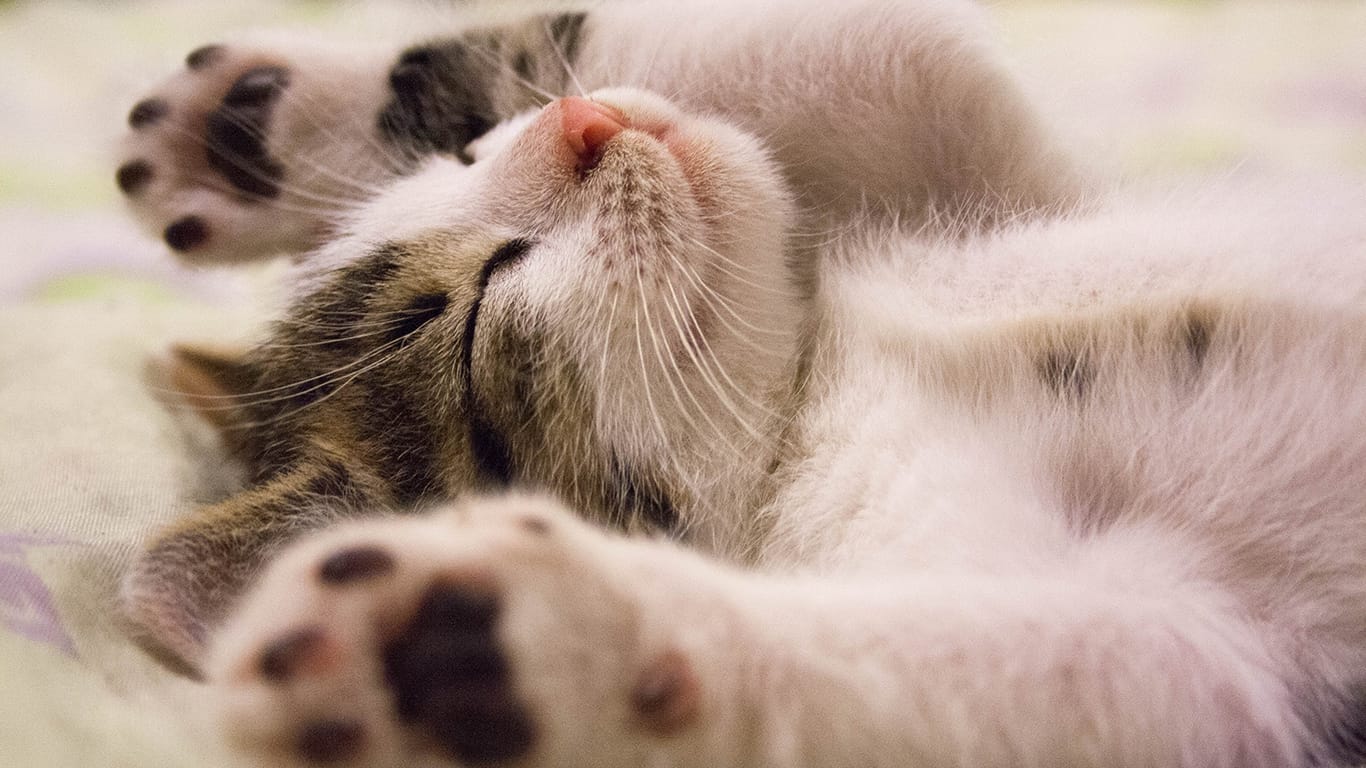Across Arizona, there are four cat cafes. In each of these locations, you can snuggle up with some feline friends while enjoying a delicious latte. However, only one of these locations is in Phoenix: PHX Cat Cafe on East Garfield Street. PHX Cat Cafe isn’t just an ordinary cat cafe — it’s a nonprofit and a rescue, meaning if you fall in love with any cats you meet during your visit, you can adopt them.
MORE NEWS: Top 5 dog names in Arizona and in the U.S.
“I co-founded this with another cat lady, and when we came together, it was just really about creating a space where people can come meet adoptable cats,” says Carrie Schwartz, the owner and one of the founders of the PHX Cat Cafe. “The adoptable cats are 100% our responsibility. We aren’t working through another rescue. And then having the coffee shop side as well kind of allows people to stay longer and interact a little bit more and be more relaxed versus just going to meet a cat.”
Schwartz founded the PHX Cat Cafe (formerly known as La Gattara) alongside Melissa Pruitt in 2020. La Gattara was established in Tempe in 2017, but the duo decided to move to a bigger location in Downtown Phoenix. This also marked their transition from a for-profit cafe to a nonprofit rescue.
Schwartz says she felt that asking for donations while being a for-profit business felt ethically dubious, and she wanted to operate the cafe as a rescue rather than having to partner with a shelter. This allows her to fundraise for the cats’ medical and day-to-day care herself without worrying about a middleman.
PHX Cat Cafe gets most of their cats through trap-neuter-release initiatives, or TNR. According to the City of Mesa website, TNR is a humane method of controlling feral cat populations. Feral cats are captured, then they are spayed or neutered, and their ear is clipped to mark that the cat has been altered (this ear clipping does not hurt the cat or its ability to hear). Some of these cats are returned to their original location, but if the cats seem comfortable enough with humans, they are brought to rescues, such as the PHX Cat Cafe. Schwartz, along with several of the cafe’s volunteers and employees, participate in TNR programs in communities across the valley.
Schwartz said the cafe rarely accepts owners’ surrenders because they’re not always forthcoming about the cat’s background.
“One of our owner surrenders right now, when I was talking to them, I was originally told [the cat] was 8. When we got him in, and the wife dropped him off, and was like, ‘Oh no, he’s 11.’ … He ended up needing a dental, having a few teeth removed, and come to find out, he’s hyperthyroid, so now he has to be on medication twice a day. I’m a little jaded,” Schwartz says.
In terms of funding the cats’ care, the cafe has a few different resources. Food and litter are donated by local vets, shelters and residents. They also must purchase wet and dry food on top of those donations. Sponsors, fundraisers and lounge hours bring in the bulk of the revenue.
“[The coffee and snacks are] definitely more of a supplement. The biggest income source is the lounge hours. But again, having coffee as an option makes the average price per customer a little bit higher. So that helps because cats are expensive,” Schwartz says.
PHX Cat Cafe also hosts various events, such as drag bingo, cat yoga, and painting with cats. Customers can also book the cafe for private events. This generates even more revenue.
Rather than sponsors reaching out to Schwartz, she seeks out sponsors for support. She advertises the cafe through social media and fliers in nearby businesses. She said the cafe has also been featured on a few local news broadcasts, but she doesn’t pay for commercial advertising because it’s too expensive.
Adoption
For Scwartz, getting a cat adopted into a loving home is the most rewarding aspect of the job.
“I love when [the cats] get adopted. I will say I do become attached to them, and I want to make sure that they can live their best life. A lot of people say, ‘Oh, the cat cafe is an amazing place for them,’ but it’s not a home. It’s not snuggling on the couch watching movies with your best friend. While it’s a great place versus being in a kennel, it’s not a home,” Schwartz says.
Schwartz also doesn’t allow anybody to adopt a cat without a thorough inspection of a potential adopter’s character and living space.
“I’m a bit particular about our adopters. We have quite a process. We have an application that they fill out, and then we do an interview, and then we do a virtual home check as well. And I do deny adopters if I don’t feel like their home is going to be the best for that cat,” Schwartz says.
Facilitating adoptions and building connections with adopters is Schwarz’s favorite part about running the cafe. However, she adds that running a nonprofit can be very overwhelming. Schwartz notes that most customers are kind and respectful of the rules, but there have been a few visitors who have been troublesome.
“One of the most frustrating things is sometimes the people that come to visit view this more as an amusement park than a safe place for cats … [cats] are very good at setting boundaries. When people don’t respect those, and they’re upset when they get scratched, it’s like, ‘Well, you didn’t listen,’” Schwartz says.
“There’s only been one person that I can think of that I actually like had to tell to leave before their time was up, because they were just not being respectful, putting their hand in the cat’s face, even though the cat was backing up and very clearly giving signs that [the cat] was uncomfortable, and they just wouldn’t stop. I got to the point that I said, ‘I’m sorry, you have to leave, and you’re not welcome to come back,’” Schwartz continues.
The cats mostly get along and enjoy each other’s company. Sometimes, however, cats bring the drama rather than the guests.
“Cat drama is something that you never knew was such a big deal. For the most part, they do get along, but we have specific parameters of what cats we can bring in based on the personalities that we currently have. Like right now, we just tried to bring in a couple of boys that were [about 1-year-old], not working; the personalities of some of our long timers just don’t mesh well with those. But for the most part, once they come in, they just figure out their own zone. And you’ll see some have specific corners that they hang out in, or boxes,” Schwartz says.
About 10 cats are adopted every month, according to Schwartz. That rate slowed over the summer, dropping to 2 in October. However, she’s optimistic about that number rising as Phoenix’s weather cools.
When a cat is adopted, there’s a grace period before a new cat is brought in to accommodate returns. This also allows the cats to adapt to a change in their environment.
“Sometimes, depending on personalities, when we have one or two [cats] leave, we’ll just kind of let it hang for a moment until a couple more get adopted, just because sometimes, if we get a return, or we get something that just kind of throws off the balance, we want to have a little bit of buffer,” Schwartz says.
2025 Goals
Schwartz says she wants to expand PHX Cat Cafe in 2025.
“I really would love to find a place where I can open a second location. That’s one of my biggest goals, but the struggle is finding a landlord that will allow [cats]. Also, growing our monthly donors and sponsors, and just kind of building those relationships with people within the community,” Schwartz says.
Both Schwartz and her staff say that the cafe is always looking for more volunteers. Each employee works one volunteer shift. As a nonprofit, it is difficult to always pay a large team of employees. Volunteering allows the cafe to provide their cats with the best care possible.
If you are interested in volunteering, adopting, or donating, visit phxcatcafe.org.




